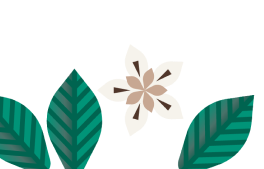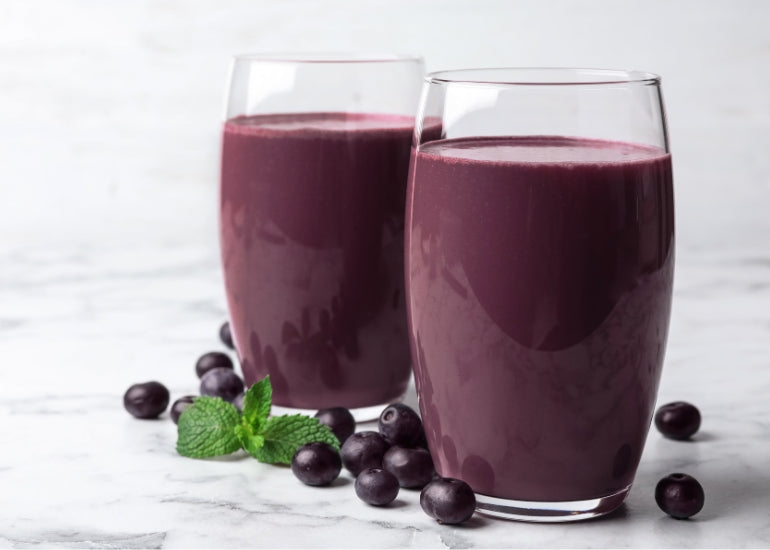Acai berry, a Brazilian superfood, has been the darling of the smoothie world for decades. Here we answer your most commonly asked questions about them.
Acai is more than just a smoothie staple—this nutrient-dense berry is packed with antioxidants, fiber, and healthy fats that support overall well-being. To learn more about the benefits of acai and how to incorporate it into your daily routine, check out our in-depth guide.
What are acai berries and where do they come from?
Acai berries come from a type of palm tree native to the eastern Amazon Rainforest of Brazil. The slender trees can grow up to 100’ tall, reaching for sunlight amidst other native species. Their uppermost growth is filled with branched panicles covered in hundreds of deep purple berries—or, technically, drupes, as characterized by their single large pit.
Acai berries have been enjoyed by Brazilians for centuries. With an earthy flavor reminiscent of dark berries and complex cacao, and a high fat/low sugar content, acai is a unique and versatile fruit. Traditionally, it was often mixed with a local flour, like tapioca, and served as a dip for savory dishes. In another popular dish, the berries were mashed and mixed with sugar for a sweet, soupy pudding—the original acai bowl!
Why is your Acai Powder pasteurized?
The acai berry is a particularly fragile one; with its low amounts of sugar and acid (natural preservatives) and high amounts of omega fats, it can quickly go rancid if it’s not processed within a few days of harvesting. For nearly all acai in the marketplace, this means flash pasteurization, a heat treatment step that deactivates the enzymes that cause rancidity while preserving the berry’s flavor and nutrients.
Another important reason that acai pulp is flash pasteurized during its processing is because of a particular microorganism found in acai growing regions—a tiny parasite called Trypanosoma cruzi. These protozoa spread an infectious disease called Chagas, which can cause digestive issues and heart problems if left untreated. Acai products in their raw form have been an occasional source of Chagas outbreaks, which is why pasteurization is an important food safety step in the processing of this superfood.
Is child labor used in harvesting your acai berries?
With the increased demand for acai berries over the past few decades, many large acai plantations have been established in Brazil. Unfortunately, some of these have a dark side to them: dependence on child labor. With their small size and light weight, children are quick to climb to the tops of palm trees and less likely to break the fragile uppermost growth on their way.
The primary issue is not children climbing trees or learning how to handle harvesting knives, or even contributing some labor to a family farm. The real problem stems from the prevalence of poverty in some acai growing regions that results in children working long hours on plantations at the expense of their schooling. In these cases, instead of the acai market creating growth opportunities for these young people, it can limit their options and perpetuate the cycle of poverty.
Here at Navitas Organics, we always seek out suppliers who are committed to equitable and fair-trade practices from start to finish. To ensure this, our growers are regularly audited for compliance with these standards—including not using child labor in the production of our superfoods. Additionally, we preferentially source from smallholder farms and farmer co-ops whose growing practices align with our values.
Do you have a superfood question for Kali? Send it to her at askus@navitasorganics.com!
See what other burning superfood questions customers are asking in our candid "Your Questions Answered" Blog Series here.
)

